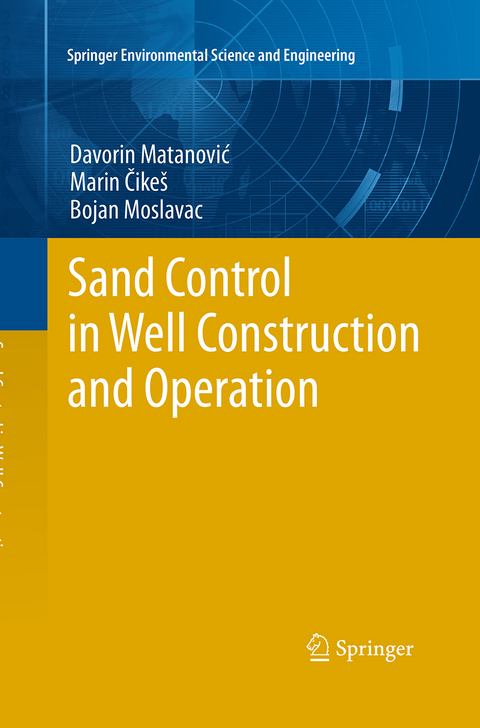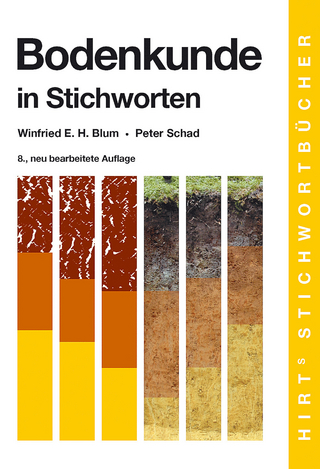
Sand Control in Well Construction and Operation
Seiten
2016
|
Softcover reprint of the original 1st ed. 2012
Springer Berlin (Verlag)
978-3-662-52104-5 (ISBN)
Springer Berlin (Verlag)
978-3-662-52104-5 (ISBN)
Sand control issues in wells can result from improper completion or changes in reservoir properties. Covering all aspects of the topic, this volume shows how methods such as reducing drag forces and mechanical sand bridging can reduce the problems that arise.
Produced sand causes a lot of problems. From that reasons sand production must be monitored and kept within acceptable limits. Sand control problems in wells result from improper completion techniques or changes in reservoir properties.
The idea is to provide support to the formation to prevent movement under stresses resulting from fluid flow from reservoir to well bore. That means that sand control often result with reduced well production. Control of sand production is achieved by: reducing drag forces (the cheapest and most effective method), mechanical sand bridging (screens, gravel packs) and increasing of formation strength (chemical consolidation). For open hole completions or with un-cemented slotted liners/screens sand failure will occur and must be predicted. Main problem is plugging. To combat well failures due to plugging and sand breakthrough Water-Packing or Shunt-Packing are used.
Produced sand causes a lot of problems. From that reasons sand production must be monitored and kept within acceptable limits. Sand control problems in wells result from improper completion techniques or changes in reservoir properties.
The idea is to provide support to the formation to prevent movement under stresses resulting from fluid flow from reservoir to well bore. That means that sand control often result with reduced well production. Control of sand production is achieved by: reducing drag forces (the cheapest and most effective method), mechanical sand bridging (screens, gravel packs) and increasing of formation strength (chemical consolidation). For open hole completions or with un-cemented slotted liners/screens sand failure will occur and must be predicted. Main problem is plugging. To combat well failures due to plugging and sand breakthrough Water-Packing or Shunt-Packing are used.
Reasons for sand production and prediction possibilities.- Obtaining relevant formation data and samples.- Sand control techniques.- Treatment fluid selection.- Gravel - pack design.- Screen design.- Chemical consolidation design.- Frack packing.- Perforating for sand control.- Surface equipment (pumping, mixing, filtering).- Down hole equipment.- Sand control method selection.
| Erscheinungsdatum | 15.07.2016 |
|---|---|
| Reihe/Serie | Springer Environmental Science and Engineering |
| Zusatzinfo | VII, 200 p. |
| Verlagsort | Berlin |
| Sprache | englisch |
| Maße | 155 x 235 mm |
| Gewicht | 326 g |
| Themenwelt | Naturwissenschaften ► Geowissenschaften ► Geologie |
| Naturwissenschaften ► Geowissenschaften ► Hydrologie / Ozeanografie | |
| Naturwissenschaften ► Physik / Astronomie ► Festkörperphysik | |
| Naturwissenschaften ► Physik / Astronomie ► Strömungsmechanik | |
| Naturwissenschaften ► Physik / Astronomie ► Thermodynamik | |
| Schlagworte | Chemical consolidation • Gravel pack • hydrogeology • Sand control • Screens • Well completion and workover |
| ISBN-10 | 3-662-52104-0 / 3662521040 |
| ISBN-13 | 978-3-662-52104-5 / 9783662521045 |
| Zustand | Neuware |
| Informationen gemäß Produktsicherheitsverordnung (GPSR) | |
| Haben Sie eine Frage zum Produkt? |
Mehr entdecken
aus dem Bereich
aus dem Bereich


